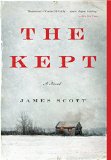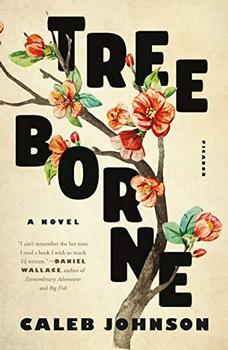Summary | Excerpt | Reviews | Beyond the book | Read-Alikes | Genres & Themes | Author Bio

A scorching portrait of guilt and lost innocence, atonement and retribution, resilience and sacrifice, pregnant obsession and primal adolescence, The Kept is told with deep compassion and startling originality, and introduces James Scott as a major new literary voice.
Set in rural New York state at the turn of the twentieth century, superb new talent James Scott makes his literary debut with The Kept - a propulsive novel reminiscent of the works of Michael Ondaatje, Cormac McCarthy, and Bonnie Jo Campbell, in which a mother and her young son embark on a quest to avenge a terrible and violent tragedy that has shattered their secluded family.
In the winter of 1897, a trio of killers descends upon an isolated farm in upstate New York. Midwife Elspeth Howell returns home to the carnage: her husband, and four of her children, murdered. Before she can discover her remaining son Caleb, alive and hiding in the kitchen pantry, another shot rings out over the snow-covered valley. Twelve-year-old Caleb must tend to his mother until she recovers enough for them to take to the frozen wilderness in search of the men responsible.
A scorching portrait of a merciless world - of guilt and lost innocence, atonement and retribution, resilience and sacrifice, pregnant obsession and primal adolescence - The Kept introduces an old-beyond-his-years protagonist as indelible and heartbreaking as Mattie Ross of True Grit or Jimmy Blevins of All the Pretty Horses, as well as a shape-shifting mother as enigmatic and mysterious as a character drawn by Russell Banks or Marilynne Robinson.
Throughout The Kept, there are several direct and implied references to the Bible, religiosity, God and the Devil, evil and goodness, retribution, atonement and redemption. With Caleb, especially, James Scott captures his young character's kind yet profoundly damaged soul. A particularly moving section depicts the boy's love—and anguish—for his horses and other farm animals he knows he must leave in order to find the murderers. The book tends to be overly ambitious, however, with its inclusion of so many colossal subjects and themes that sometimes compete for attention in a work chock-full of plots and characters...continued
Full Review
(694 words)
This review is available to non-members for a limited time. For full access,
become a member today.
(Reviewed by Suzanne Reeder).
In The Kept, Elspeth works in the ice trade, which began in the early 1800s. Your chilled water, iced tea and sodas (or pop, if you prefer) owe a debt of thanks to this frozen-water trade, which involved the harvesting, transport and sale of natural ice. The industry had broad ramifications affecting the preservation of food, beverages, and the treatment of illness, now considered necessities for the way most of us live today.
In 1805 two young Bostonians named Frederic and William Tudor decided to embark upon a bold business venture: cutting Massachusetts ice and shipping the product more than 1,000 miles away to sell in tropical climates. (Until his death in 1864, at age 80, Frederic denied the reported story that his older brother, ...
This "beyond the book" feature is available to non-members for a limited time. Join today for full access.

If you liked The Kept, try these:

by Marina Kemp
Published 2020
In this haunting novel, a young nurse forms an unlikely connection with the elderly man she cares for, and finds herself confronting the guilt she carries from her past.

by Caleb Johnson
Published 2019
Treeborne is a celebration and a reminder: of how the past gets mixed up in thoughts of the future; of how home is a story as much as a place.
People who bite the hand that feeds them usually lick the boot that kicks them
Click Here to find out who said this, as well as discovering other famous literary quotes!